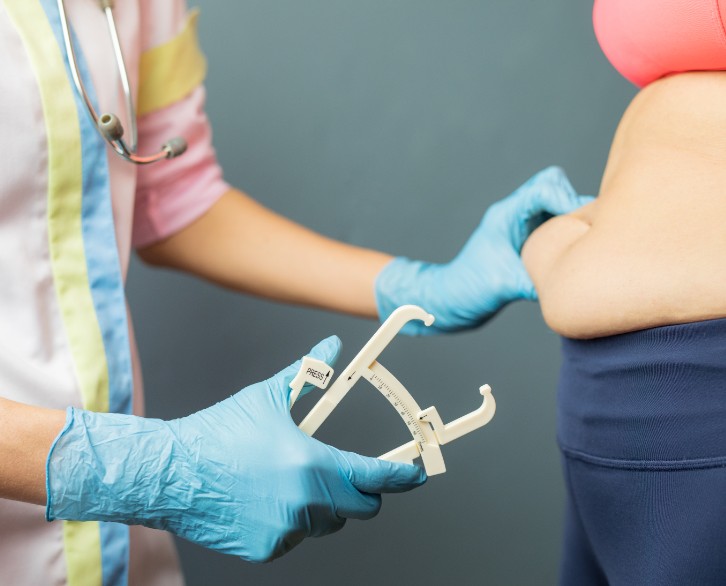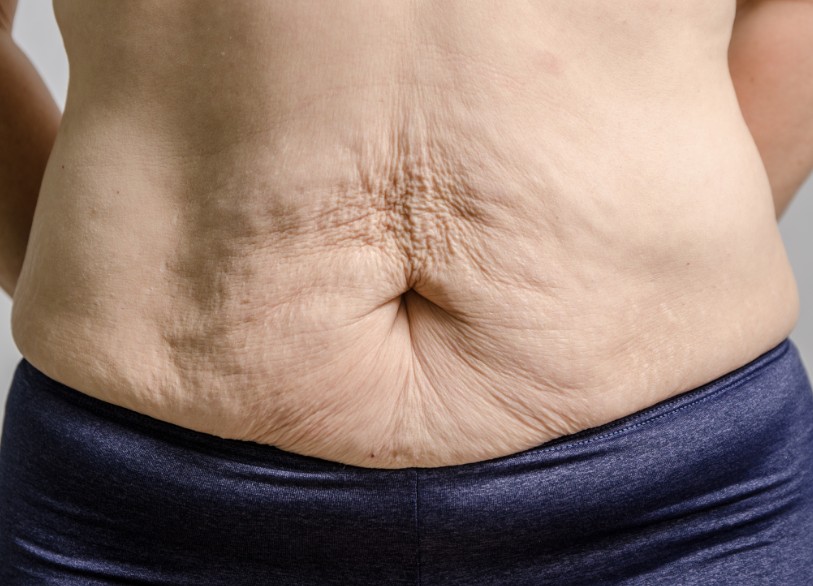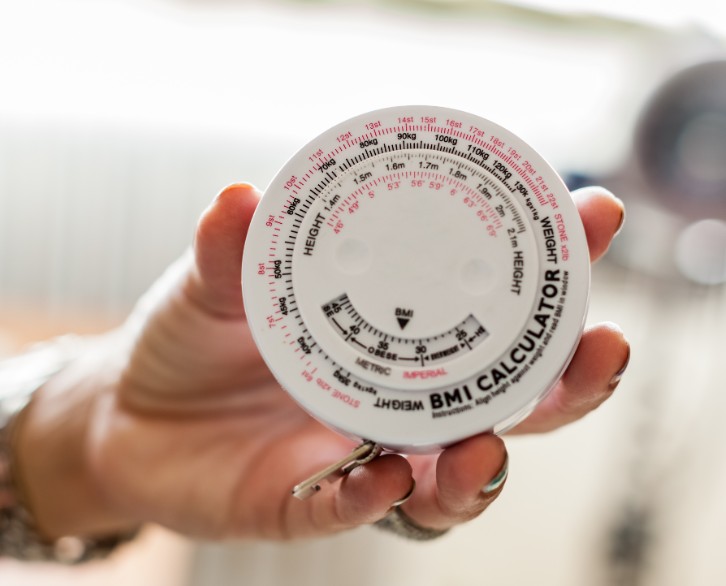
If you’re considering having weight loss surgery, much of your research is probably focused on the amount of weight you can expect to lose, the best procedure for your situation, and what to expect while you’re recovering from the procedure. Understanding what changes your body may undergo in the months and years ahead, in addition to the number of pounds lost, will be a part of this journey.
Bariatric surgery changes your physiology and the hormone signaling system between your gut and your brain. This can result in everything from changing body odor to emotional effects.
Loose Skin After Weight Loss Surgery
One of the most common changes after bariatric surgery is loose skin. With smaller weight losses this is not as evident because the skin’s elasticity can often keep up with the changes. But significant and fast weight loss after a gastric procedure is too much for the skin to keep up with.
Aside from the way it looks — which bothers some people and doesn’t bother others — the extra skin can cause chafing and rashes if it folds against itself or stays moist. If that chafing ultimately causes breaks in your skin, infection can occur.
Getting enough protein, taking proper supplements, and exercising the recommended amount can help. Some patients ultimately decide to have skin-reduction or body-contouring surgery. The American Society of Plastic Surgeons notes that common procedures include arm lifts, breast lifts, facelifts, lower-body lifts (abdomen, buttocks, thighs) and tummy tucks.
Studies report quality-of-life improvements and better long-term weight control for those who do.
Body Odor After Weight Loss Surgery
Bariatric surgery patients may experience increased body odor or bad breath due to ketosis.
Before surgery, your body uses glucose as one of its primary energy sources. Glucose most commonly comes from carbohydrates, such as bread products, sweets or fruit. After surgery, your new diet is focused on protein. Without a steady supply of carbohydrates, your body uses your stored fat for energy, which is why you lose weight rapidly. You enter a state called ketosis. In ketosis, your body transforms the fat into ketones, molecules that you use for energy. Ketones typically produce a fruity smell.
Body odor and bad breath are somewhat common during ketosis. You have more acetone (a ketone) in your body during ketosis, which causes the odor. This may be particularly noticeable in the early weeks and months of your weight loss, especially during the period when you are on liquid or pureed foods. Brushing your teeth several times during the day, carrying sugar-free gum and deodorant wipes can help.
Mental Health After Weight Loss Surgery
It’s common for those who are very overweight or obese to believe that losing the pounds will change their lives. And that’s true, weight loss changes your body physically and can improve your health in many ways. But because weight is often closely tied to body image, self-image and self-worth, unexpected emotional issues may surface during and after weight loss.
Research studies have found correlations between obesity and mood disorders. About 25% of people who undergo bariatric surgery have a mood disorder, usually depression, according to the Journal of the American Medical Association. That’s compared to 6.7% in the general population. And 17% of weight loss surgery candidates have binge-eating disorder, compared to 2.8% in the general population.
According to the study, a history of low self-esteem, bullying, fat-shaming and difficulties dating may also contribute to the depression experienced by weight loss surgery candidates. Some may also experience hopelessness and shame because the lifestyle changes and diets they’ve tried failed to reduce their weight.
Some patients experience a lessening of depression after weight loss, but a study published in Obesity Surgery showed that about 13% experience an increase. Some may have believed that weight loss could solve all their problems; in others, the need to radically alter their lifestyle and eating habits meant that those who used to manage their emotions by eating had lost a primary coping mechanism. The field of bariatric psychology is small but growing, with practitioners working specifically with weight loss surgery patients.
What Happens at a Weight Loss Surgery Support Group Meeting?
Anemia After Weight Loss Surgery
Any person who eats less food, especially meat, for an extended period of time can develop an iron deficiency. The condition is more common after gastric bypass than after sleeve gastrectomy or gastric banding, because after a gastric bypass, food bypasses the first part of your intestine, which is where iron is absorbed. Iron deficiency after surgery happens more often in women than in men, and more often in post-menopausal women than in their younger counterparts.
Anemia may affect as many as two-thirds of these patients. Not having enough iron in your system can result in fatigue, headaches, weakness, hair loss, brittle nails and more. It’s one reason why it’s so important to follow your surgeon’s or dietician’s recommendations for supplements post-procedure.
Will I Develop a Vitamin Deficiency After Weight Loss Surgery?
Taste and Odor Preferences After Weight Loss Surgery
There can be changes in patients’ preferences for foods, tastes and odors. A study by University Hospitals of Leicester researchers noted that 73% of patients said some foods tasted different, and 50% said they noticed changes in smell. Typically, they had increased sensitivity to sweet foods, sour foods and fast foods. Many have a reduced preference for and an easier time avoiding foods with high fat and sugar content, when compared to their preferences pre-surgery.
Researchers aren’t certain of the exact causes, but some believe that changing gut hormones play a role. Two specific hormones, ghrelin and leptin, are affected. Ghrelin typically increases when a person has cut back on calories, signaling the central nervous system that it needs to eat. But weight loss after bariatric surgery leads to decreased ghrelin, which reduces these messages of hunger. Leptin typically carries messages to the brain about how full to feel; when a patient loses weight, they become more sensitive to these messages, so they feel full after less food.
Understanding Your Body After Bariatric Surgery
The pounds lost after weight loss surgery can be life-changing, but they are only one aspect of the physiological and psychological side effects that patients can experience. The most important thing a patient can do is to be prepared and talk to his or her doctor about all of these possibilities ahead of time.
To learn more about the different types of bariatric surgery and which one may be right for you, call Soma Weight Loss at 855-766-2411 or contact us online.




